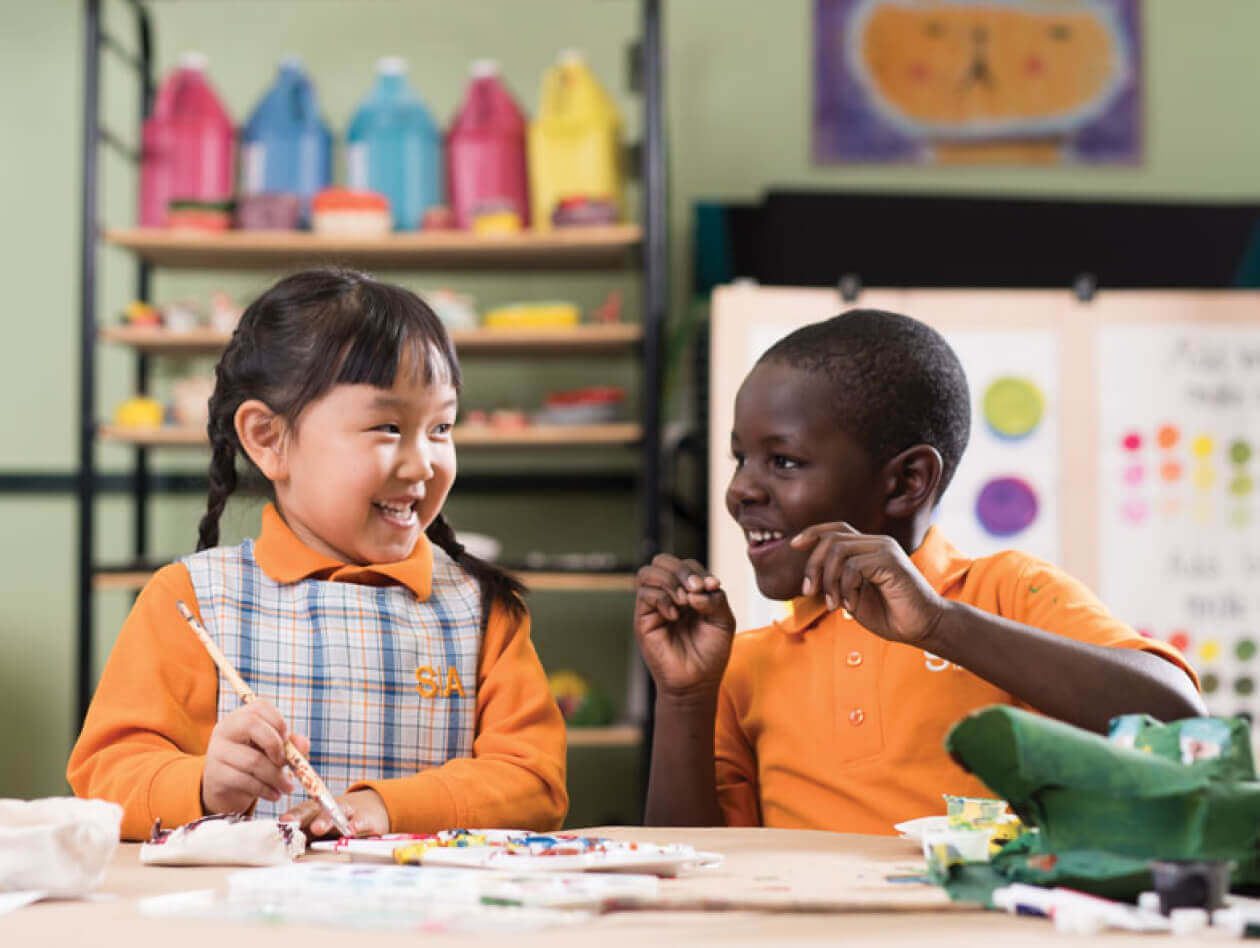Why Kindergarten develops a strong base for lifelong learning
Wiki Article
All About Preschool: Understanding the Value of Early Youth Education Programs
Preschool offers as an important stage in a kid's very early advancement. It introduces foundational abilities necessary for future discovering and social communications. Through different activities, kids engage in structured play that advertises cognitive development. Comprehending the nuances of different preschool programs can even more brighten their value. What specific benefits do these early education experiences supply, and exactly how do they form a youngster's trajectory? The solutions may be a lot more intricate than one could expect.
The Role of Preschool in Child Growth
Some might view kindergarten merely as a changeover phase prior to official education, it plays an important function in kid development. This fundamental phase fosters critical social, emotional, and cognitive abilities that are pivotal for lifelong learning. In kindergarten, children take part in organized play, which boosts their capacity to cooperate, share, and deal with problems with peers. These interactions prepared for healthy and balanced connections and boosted communication skills.On top of that, kindergarten presents children to basic concepts in proficiency and numeracy, triggering curiosity and a love for understanding. Teachers direct trainees through activities that promote analytical and crucial thinking, vital parts of intellectual growth. Moreover, the atmosphere highlights regular and structure, assisting kids develop self-discipline and freedom. By concentrating on all natural growth, kindergarten assurances that kids are not only ready academically but additionally socially and psychologically for the challenges of future academic ventures.
Key Advantages of Very Early Childhood Education
Early youth education supplies various advantages that can significantly influence a child's advancement and future success. Research study shows that children who get involved in top quality early education and learning programs display enhanced cognitive skills, much better language growth, and improved social abilities contrasted to their peers who do not attend such programs. These foundational abilities are important as they establish the phase for scholastic success and lifelong understanding.Early education fosters psychological advancement by offering children with chances for participating play and problem resolution, assisting them create resilience and empathy. Furthermore, these programs typically assist connect the gap for youngsters from diverse backgrounds, guaranteeing equitable access to learning sources and experiences
Eventually, investing in very early childhood years education and learning not only benefits specific children yet likewise contributes to stronger areas, as educated individuals are most likely to engage positively in culture and the workforce.
Various Sorts Of Preschool Programs
Various preschool programs satisfy various academic viewpoints and demands. Full-day options give prolonged learning time, while the Montessori strategy highlights self-reliance and hands-on experiences. Additionally, play-based learning techniques foster imagination and social abilities, illustrating the variety in early childhood education.Full-Day Kindergarten Options
Many moms and dads and instructors recognize the expanding value of full-day preschool alternatives in very early childhood education. Full-day programs generally give a more complete learning experience, allowing kids to engage in a range of tasks throughout the day. These choices often include a balanced curriculum that incorporates scholastic, social, and psychological growth. Some districts provide typical full-day preschool, while others might supply specific programs, such as double language or thematic discovering atmospheres. Furthermore, full-day preschool can accommodate functioning parents by straightening school hours with normal work timetables. Study suggests that students in full-day programs usually show enhanced scholastic efficiency and social abilities compared to their peers in half-day settings, making these choices increasingly prominent in numerous areas.Montessori Method Summary
Although the Montessori method is just one of several instructional viewpoints, it has actually acquired significant interest for its special emphasis on child-led knowing and exploration. Created by Dr. Maria Montessori, this technique focuses on promoting freedom and self-directed task in youngsters. Class are usually designed to urge movement and hands-on involvement with materials, allowing children to learn at their own rate. Montessori instructors function as guides, facilitating discovering with observation as opposed to direct instruction. This strategy prioritizes mixed-age classrooms, promoting partnership and peer discovering. In addition, the Montessori method highlights useful life skills and sensory activities, assisting youngsters establish a solid structure in both scholastic and social expertises. Parents often appreciate the all natural development that this strategy nurtures in their youngsters.Play-Based Learning Strategies
Play-based discovering techniques are integral to numerous preschool check my reference programs, highlighting the significance of play as an essential setting of discovering for kids. These strategies urge exploration, imagination, and social interaction, allowing kids to take part in hands-on experiences that foster psychological and cognitive growth. Different kinds of play, such as imaginative, useful, and physical play, are used to sustain discovering objectives across topics like mathematics, literacy, and scientific research. Furthermore, play-based programs often incorporate collective tasks, promoting synergy and communication abilities. Educators observe and lead kids throughout play, guaranteeing that finding out end results are attained while maintaining a happy learning setting. This approach not just improves scholastic preparedness but likewise grows a lifelong love for knowing, making it an essential component of very early childhood education and learning.The Significance of Play in Knowing
A considerable body of study underscores the important duty of play in very early childhood years education, illustrating its extensive effect on discovering and advancement. Play acts as an important device via which kids explore their environment, create cognitive abilities, and boost their problem-solving abilities. Involving in imaginative play enables kids to experiment with different roles and situations, promoting imagination and critical reasoning.Play-based understanding motivates kids to engage with products and ideas in a hands-on way, making abstract ideas much more reasonable and concrete. This experiential discovering strategy not only records children's passion but additionally advertises intrinsic motivation, essential for lifelong knowing.
Via play, kids also fine-tune their electric motor abilities and spatial understanding, laying the groundwork for more complicated academic tasks. Essentially, prioritizing play in very early childhood education programs is important for nurturing alternative development, furnishing children with the fundamental skills essential for their future instructional journeys.
Social Skills Development in Preschool
Building on the structure established via play, kindergarten works as a vital environment for social skills growth. During this developmental stage, youngsters take part in organized activities that motivate communication with peers. With group jobs, cooperative games, and shared jobs, they discover important skills such as interaction, compassion, and dispute resolution.Educators assist in these communications, leading children in recognizing social hints and fostering favorable partnerships. As children browse numerous social scenarios, they create a feeling of belonging and learn to appreciate varied viewpoints.
In addition, preschool gives opportunities for children to practice turn-taking, sharing, and arrangement, which are crucial for constructing friendships. These experiences not only improve social competence but also contribute to emotional intelligence. Because of this, the social abilities acquired in kindergarten prepared for successful communications in later instructional settings and throughout life. The significance of social abilities development in kindergarten can not be overemphasized.
Adult Participation in Very Early Education

Moreover, when moms and dads show a passion in their youngster's education, it grows a positive mindset towards discovering. When they really feel supported, kids are much more most likely to create a feeling of belonging and motivation to prosper. Additionally, adult participation can enhance a child's emotional well-being, causing better durability in facing college obstacles. Promoting a joint setting between home and college is vital for maximizing early academic experiences and end results.
Planning for the Shift to Grade School
As youngsters approach completion of their preschool journey, getting ready for the change to primary school becomes significantly vital. This change calls for mindful preparation and assistance from both instructors and moms and dads. Familiarizing children with the brand-new setting, routines, and assumptions of elementary college can alleviate their stress and anxiety and advertise self-confidence.
Colleges typically give positioning sessions that present youngsters to their future class and educators, promoting a sense of belonging. In addition, parents can involve in conversations about the changes ahead, highlighting the exciting chances for learning and social communication.
Encouraging self-reliance in everyday tasks, such as complying with a routine and dressing, can also be helpful. Exercising crucial skills, such as letter recognition and fundamental math, prepares children academically for initial quality.
Ultimately, a collaborative initiative among parents, educators, and the neighborhood ensures a smoother change, laying a strong foundation for an effective academic trip.
Frequently Asked Concerns
What Credentials Should Kindergarten Educators Have?
Preschool instructors should have a bachelor's degree in early youth education or a relevant area, in addition to state certification. Additional certifications might consist of specialized training in youngster growth, class administration, and efficient mentor techniques.How Do I Select the Right Preschool Program?
To select the ideal kindergarten program, one should consider elements like curriculum, Read Full Report teaching methods, course size, instructor certifications, and moms and dad testimonials. Going to facilities and observing interactions can also give valuable insights right into the program's atmosphere.What Should My Kid Learn in Kindergarten?
In preschool, a kid should learn foundational abilities such as basic reading and writing, counting, social interactions, problem-solving, and electric motor abilities. These competencies promote cognitive advancement and prepare them for future instructional obstacles.Exist Age Demands for Kindergarten Registration?
A lot of states need youngsters to be 5 years of ages by a certain date, typically September 1st, for kindergarten enrollment. Particular age requirements can differ, so inspecting neighborhood school district regulations is vital.Just How Can I Assistance My Kid's Learning in your home?
To sustain a kid's learning in your home, moms and dads can establish a routine, supply engaging educational materials, encourage analysis, take part in hands-on activities, and foster open interaction to nurture curiosity and vital thinking abilities.Kindergarten serves as an important stage in a youngster's early development. Some may view preschool merely as a changeover phase before official schooling, it plays a necessary function in youngster growth. In enhancement, kindergarten presents youngsters to standard principles in literacy and numeracy, sparking inquisitiveness and a love for learning. Play-based learning approaches are essential to various preschool programs, emphasizing the relevance of play as a basic mode of learning for young children. In preschool, a youngster should find out foundational skills such as fundamental analysis and writing, counting, social interactions, problem-solving, and motor abilities.
Report this wiki page